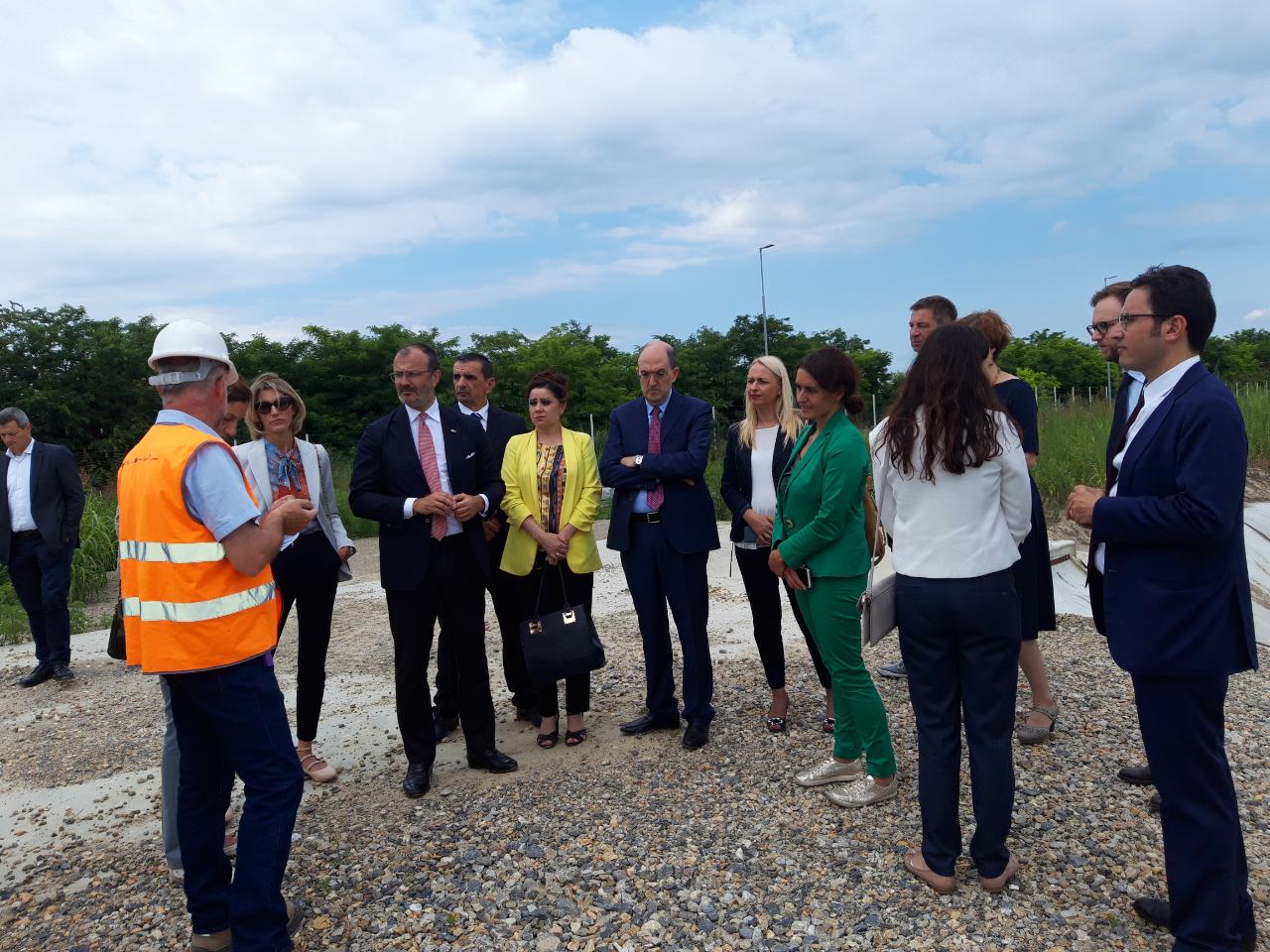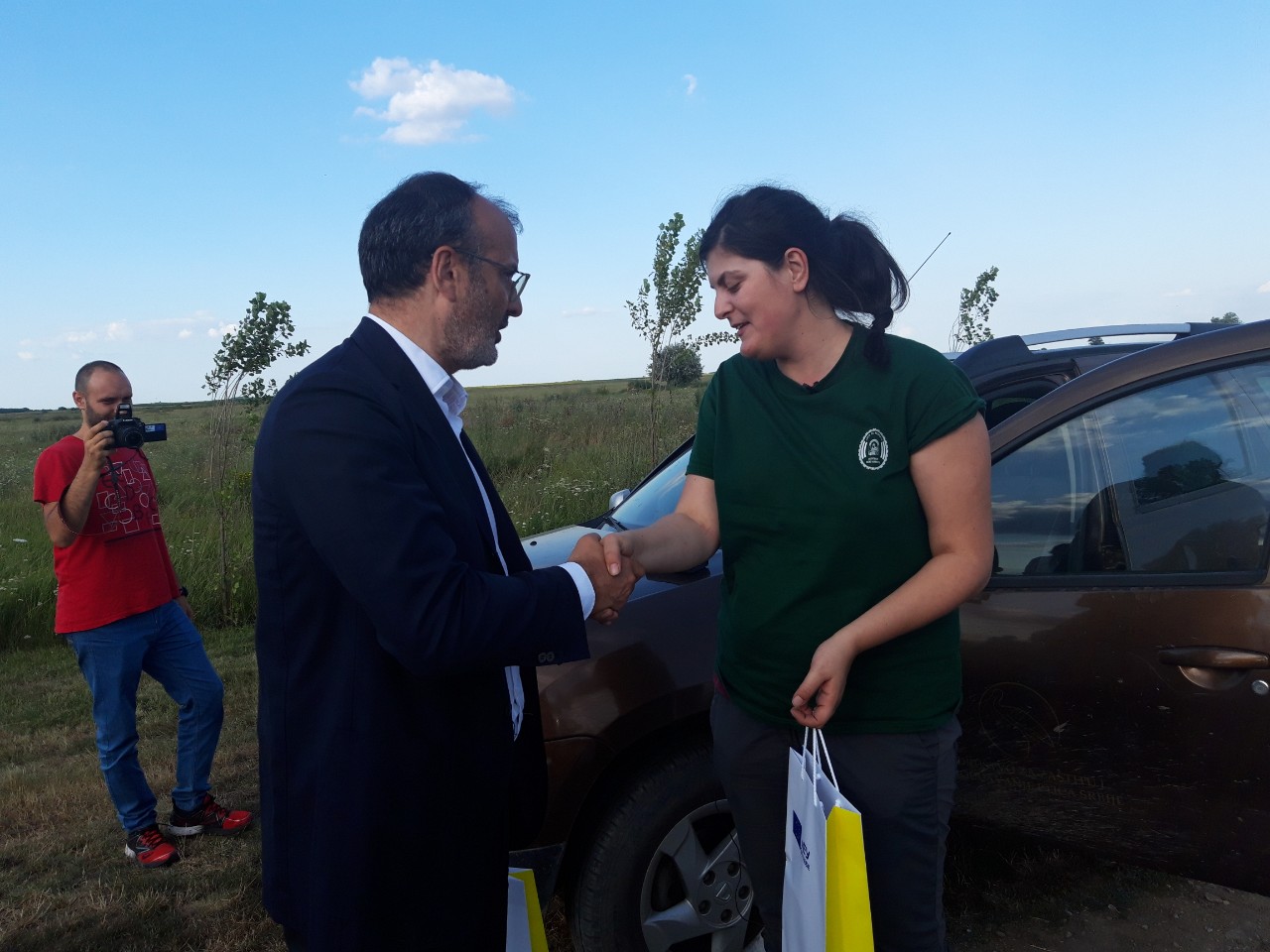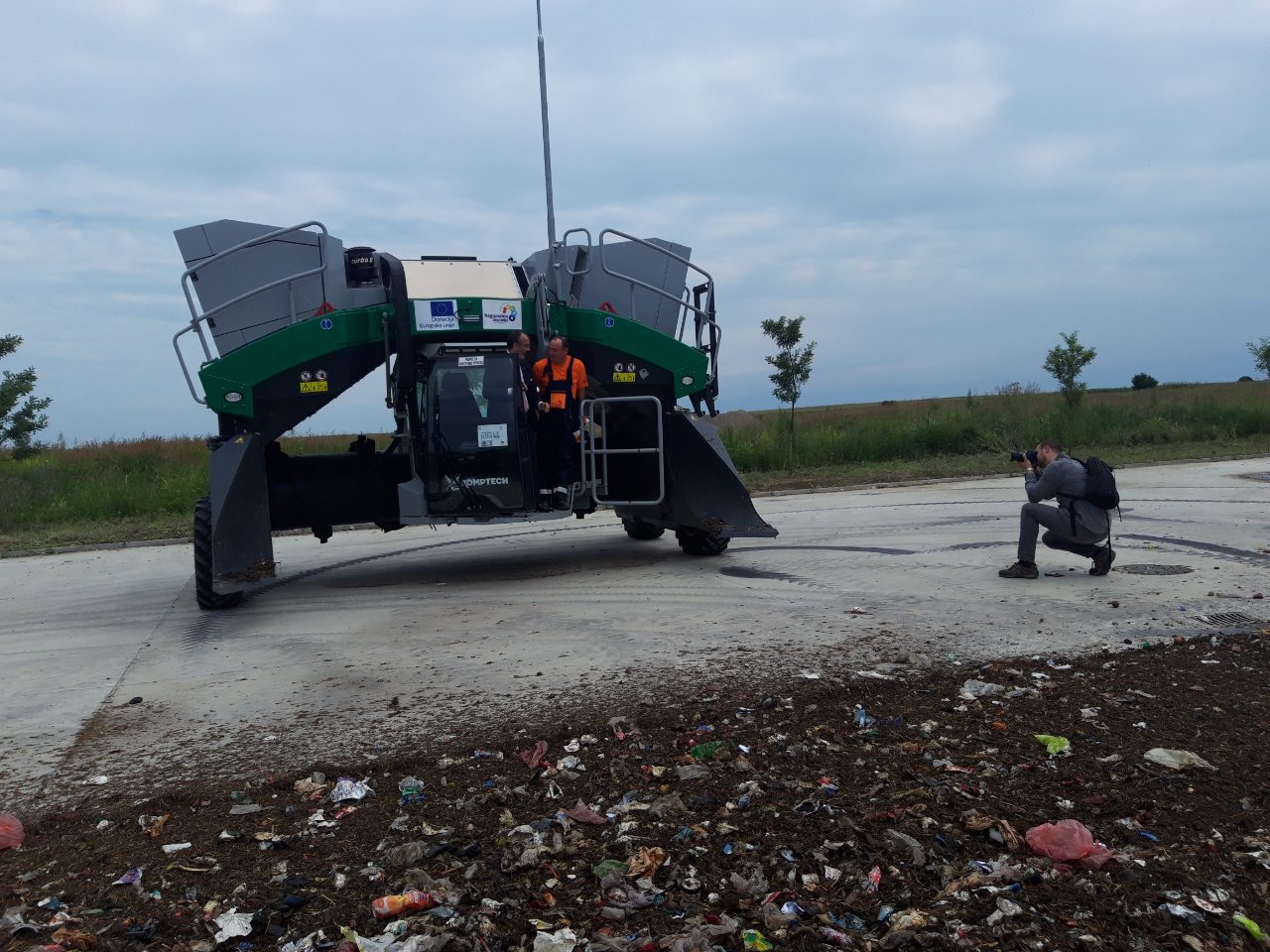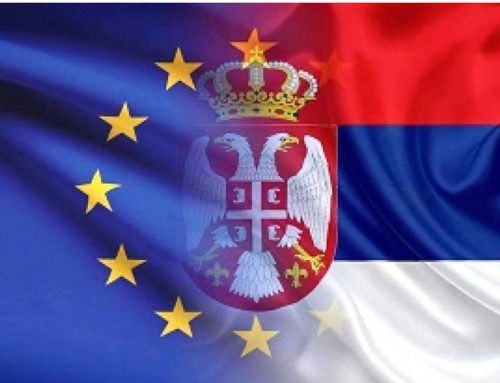The Head of the Delegation of the European Union Ambassador Sem Fabrizi, Assistant Minister of Environment Protection Filip Abramović and the representative of the Ministry of European Integration Aleksandra Radinović participated in the one-day event “EU Green Day in Subotica”, held on Wednesday as part of the environmental campaign.
At the beginning of the visit, they visited the Regional Waste Management Center, a modern facility built in accordance with European standards that will enable the citizens of Subotica and six surrounding municipalities (Senta, Kanjiža, Backa Topola, Mali Iđoš, Čoka, and Novi Kneževac) to have a healthier life middle. The construction of a plant that was in the testing phase cost 24 million euros, of which 20.3 million is a donation from the European Union, and the remaining funds are provided from the republic and local budgets.
“Within the campaign, we visit different places around Serbia in order to raise awareness of the need for environmental protection. I am very pleased to be in Subotica. The motto of our campaign is “Look around and move” and we are here right now in action. We are touring the Regional Waste Management Center. I am impressed by the size, capacity and technology of the Center that meets the needs of 250,000 people – the inhabitants of the city of Subotica and six surrounding municipalities, “says Ambassador Fabrizi.

He points out that negotiating chapter 27, dealing with environmental protection, is very important for joining the European Union, and that 70 percent of laws in this field are implemented locally.
Italian Ambassador Carlo Lo Cascio, who also attended the tour, said the plant was built by the Italian company IPI and that the project will enable municipalities not only to better manage waste but will also improve the lives of their citizens. The Ambassador stressed that Italy is the most important partner of Serbia in this area and that in September the Italian Minister of Environment will visit Minister Trivan to sign a memorandum on ecological cooperation.
“This is one of the regional centers planned in the territory of the Republic of Serbia, there will be 23 or 24 according to the new strategy, their construction and equipping are at different stages, and we, as a Ministry, have joined in forming them by providing all technical, professional and financial assistance “, says Abramovic.
 After touring the regional landfill, Subotica Mayor Bogdan Laban received Ambassador Fabrizi in the Green Room of the Town Hall and on that occasion he met him with the capital projects that are being realized in that city.
After touring the regional landfill, Subotica Mayor Bogdan Laban received Ambassador Fabrizi in the Green Room of the Town Hall and on that occasion he met him with the capital projects that are being realized in that city.
In a panel discussion on the participation of local actors in the improvement of the environment held at the Open University Subotica, Fabrizi emphasized that it is extremely important for citizens to see that the EU works with national and local authorities in environmental protection and that it is important to hear what citizens think about projects and how they contributed to the excitement, because “projects at the end of the day were dedicated to them”.
Head of the EU Delegation visited the area where the EU project “PannonEagle – Protection of Eagle Crusaders in the Pannonian Plain” is being implemented, near the Serbian Krstur. Within the framework of this project, which started in 2016, the last breeding eagle parasite in Serbia is being protected. Representatives of the Society for Studying and Protection of Birds of Serbia presented what they are doing to protect the eagles, and then the observation of birds is organized. The area is part of the Nature Preservation Area of the “Pašnjaci velike droplje”.

Due to the modern age and lifestyle, the crust eagle population has drastically decreased and in Serbia, there is now only one breeding couple – Bora and Eržika.
“With all endangered species, the biggest problem is the loss of habitat. We lost a lot of open spaces where there was a wealth of eagle prey. They need a broad crown that is sufficiently transparent and insulated. These are usually old trees, and most often oak, and after all, it was named Krstaš, because it landed on old oaks, which were marked with a cross and considered a holy place. It demands therefore specific habitat conditions so that it can survive”, claims Milica Mišović from the Society for the Protection and Study of Birds of Serbia, and emphasizes that everyday team of two members is monitoring the eagles and that they always react to any potential harassment.
Subotica is the third city in Serbia to organize a one-day tour of facilities built with the support of the EU and presenting projects in the field of environmental protection, after Užice and Šabac.
You can read more about the “Look around” campaign at www.pogledajokosebe.rs.




